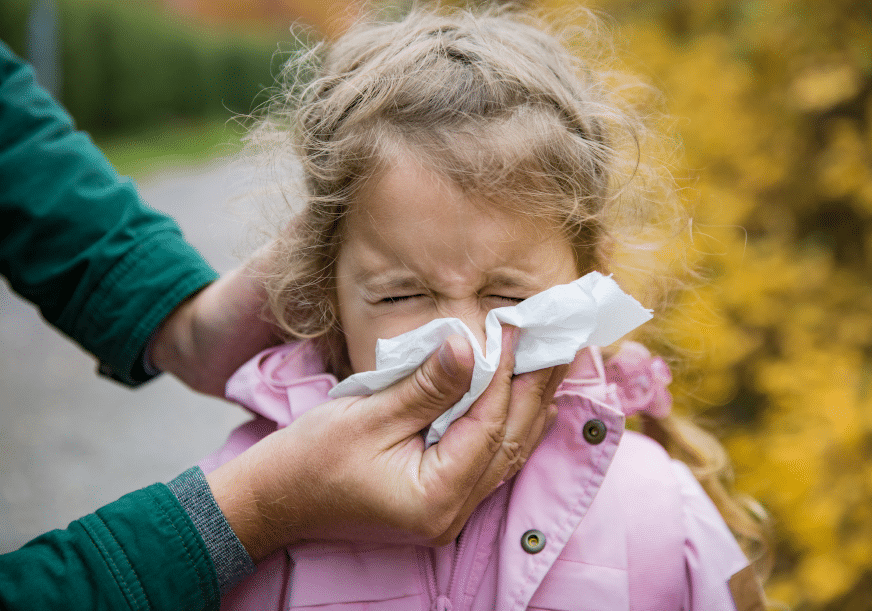While spring allergies gets most of the press, many are no stranger to fall allergies, especially as we wonder if every sniff, cough, and sore throat is a sign of allergies or something else. Fall and winter allergies arise with heaters being kicked on, changes in the plants outside, and more time being spent inside causing more exposure to mites, dust, and pets. Integrity Urgent Care is here to help you with your fall allergies and any other issues that may pop up for you and your family.
Symptoms
Sneezing after exposure to environmental allergens is probably the most common symptom. Also common are itchy eyes, throat, and ears, a stuffy or runny nose, and difficulty breathing. The severity of the symptoms may change, with individuals experiencing allergies more as they get older. If you have asthma, you may experience heightened symptoms like wheezing, chest tightening, and exhaustion. You can tell the difference between allergies and a cold by duration, with allergies potentially lasting for months and symptoms coming up soon after exposure to allergens. Additionally, most people with allergies don’t experience body aches and pain and rarely have a fever. If you are experiencing those symptoms, you may want to assume you have a cold, the flu, or some other virus.
Treatment
Treatments vary from person to person. Some may see the benefit of taking an antihistamine which blocks the body’s response to exposure to the allergens in the environment that are causing the symptoms. You can also treat only your worst symptoms, like taking a decongestant or pain reliever for sinus pressure you may have. Other patients feel relief with neti pots or nasal sprays, but make sure you are using these correctly and use only clean, distilled water in your neti pot. As always, we recommend drinking lots of water, getting plenty of rest, eating a variety of fruits and vegetables, and getting exercise most days of the week.
Prevention
While some patients with some of the more severe allergies may do well with allergy shots, most patients have limited ways to prevent seasonal allergies. According to healthline.com, allergy shots “work by exposing you to very small amounts of your allergens regularly to build up your body’s immunity to them.” Over the counter medicines work for some patients, at least with providing a small amount of relief from some of the larger symptoms. You may need to try different types of medicine, not every patient or allergy profile reacts the same to medication. Some see benefits from using covers on their mattress and frequently washing bedding and linens. Regular cleaning and sealing of areas in your house can help, too.
If you need help with seasonal allergies, have questions, or suspect you have a viral issue, come see our team at Integrity Urgent Care. We can help evaluate your symptoms and give you a treatment plan that will best help you get back to your regular routine. Our clinics are open most days of the week and we accept most major forms of insurance. If you have questions, contact us today.






